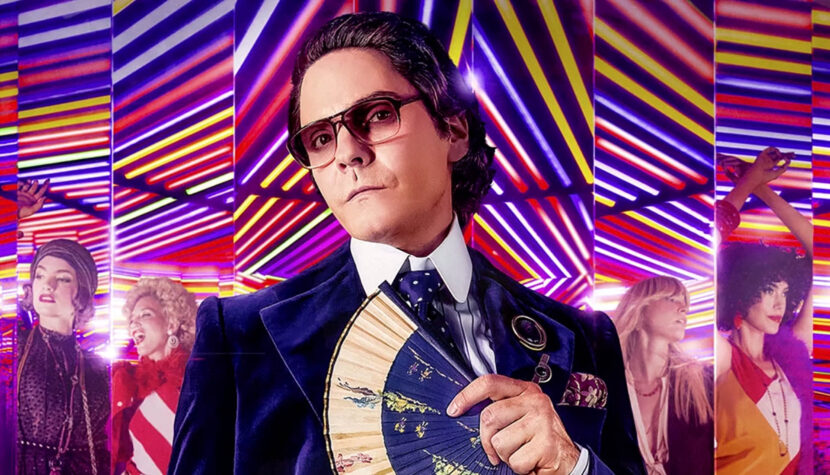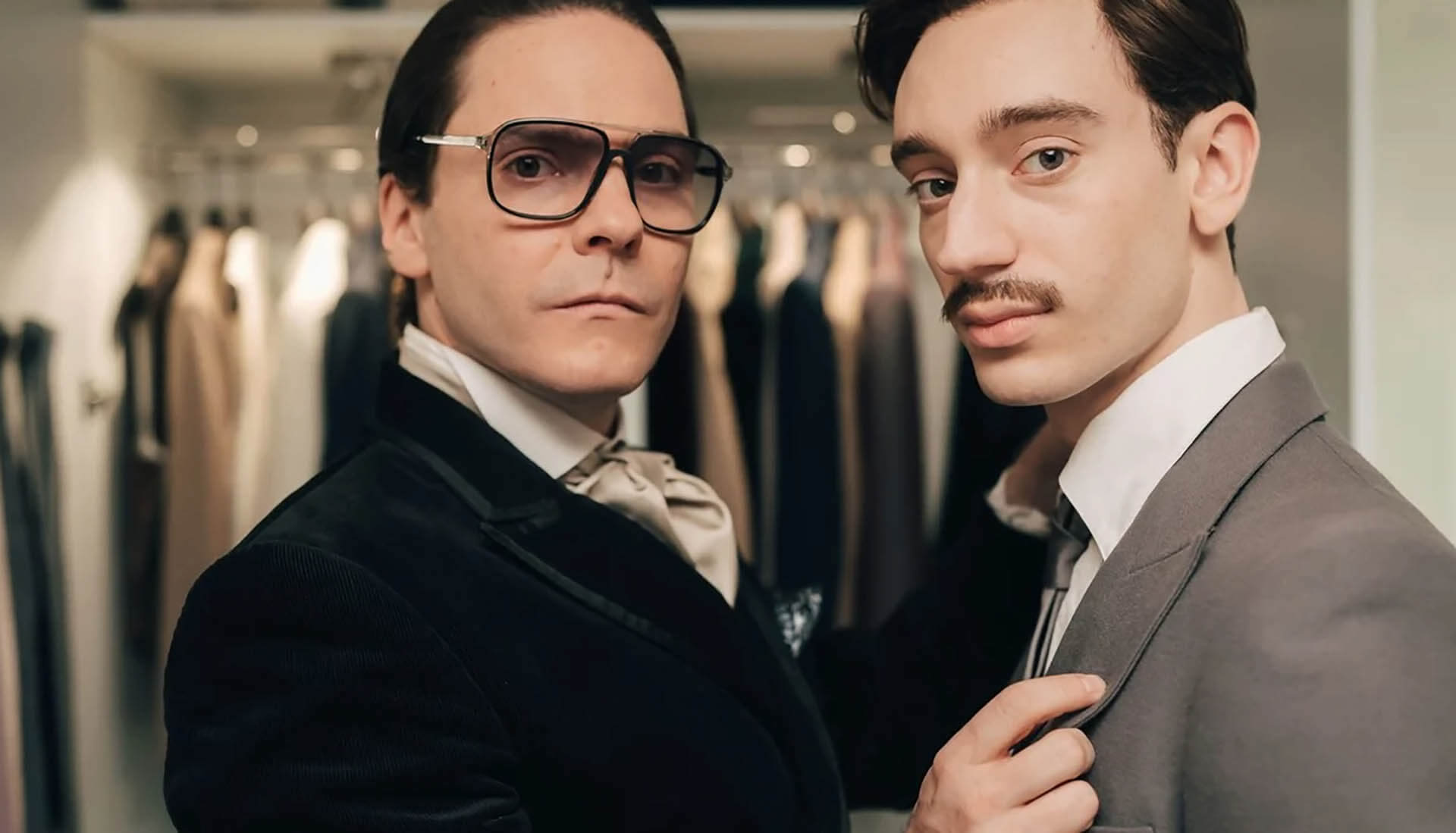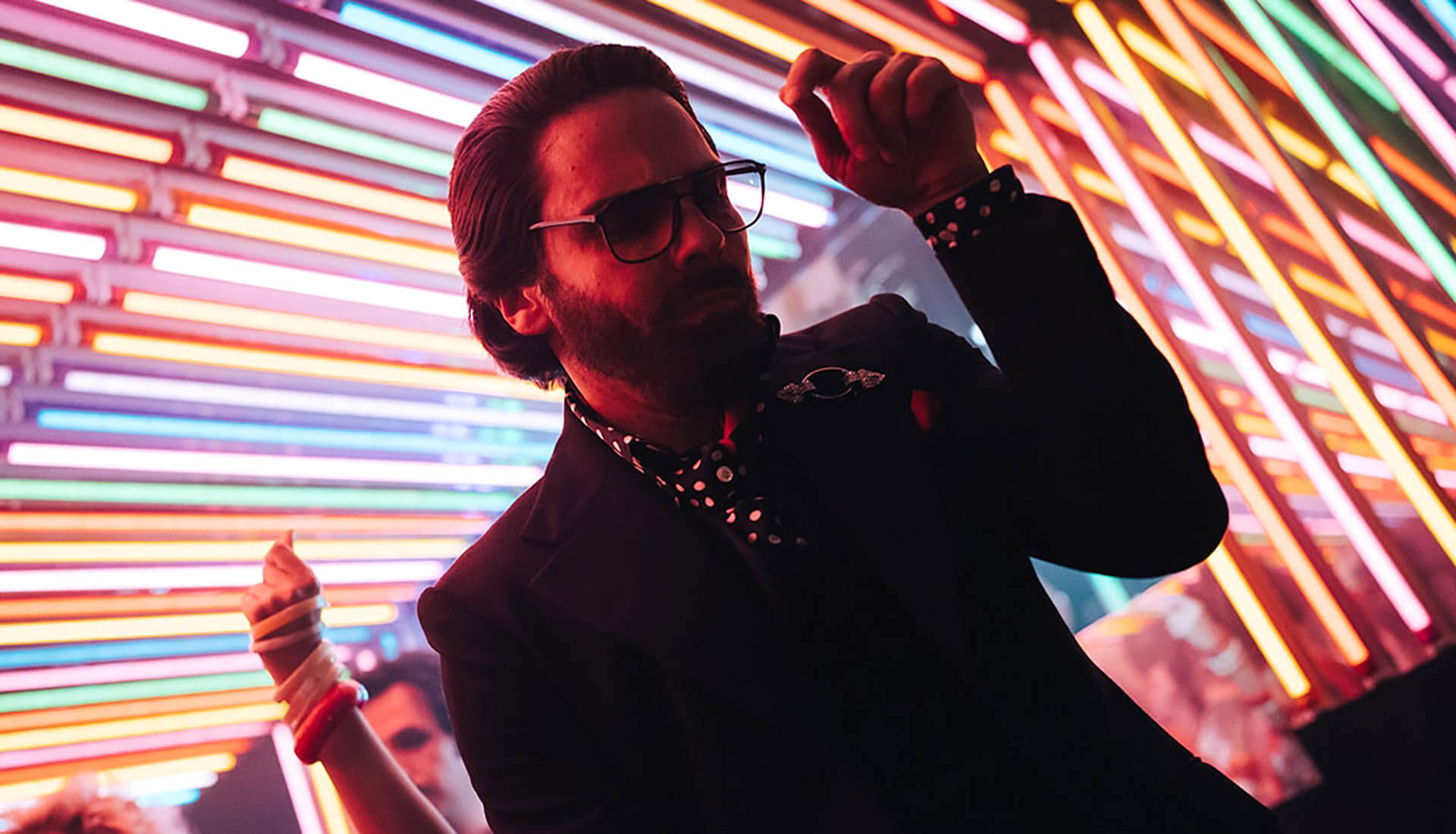BECOMING KARL LAGERFELD. The temptations of this world are for the great

After the brilliant Cristóbal Balenciaga, who introduced me to the world of high fashion in such a surprisingly accessible, engaging, and mature manner, the time has come for a series about a much more commercially known fashion icon – Karl Lagerfeld. At first, it seemed impossible to reach Balenciaga‘s level, but it succeeded. So, I can responsibly say that a new series about the life of someone who might seem irrelevant and separated from our problems by a bulletproof glass premiered on Disney+. Nothing could be further from the truth. Karl Lagerfeld, masterfully portrayed by Daniel Brühl, turns out to be a man with an inner world as fascinating as New Adventure cinema.
This cognitive, life, and erotic adventure is aesthetically wrapped in a retro-modern vision of the 70s, accompanied by a wonderful soundtrack that mixes disco with classical music and many other genres, rearranged to make it easier for contemporary viewers to connect. And it works. The music and the changing expressions on Daniel Brühl’s face, as well as his acting “partner” Théodore Pellerin in the role of Lagerfeld’s platonic lover – Jacques de Bascher. There’s no need for two men to undress to show their love for each other. And although the series includes gay clubs, talk about screwing, farting, anal connotations, and Yves Saint Laurent kneeling before the fly of a young lover, it is this non-naked, non-parallel emotional relationship between Bascher and Lagerfeld that is the most sensual and captivating. It could inspire a larger novel about two lost, sensitive people, or at least a short story. Fashion takes a back seat and serves only a complementary role. It’s quite different from Cristóbal Balenciaga, but this convention does not hinder at all. There is as much fashion as there should be, so it does not overshadow the story of human feelings, which cannot be confined to a single cultural and sexual template. Thus, one could say that Karl Lagerfeld’s personality is pansexual, separated from physical eroticism, yet carrying it for others, almost like a preacher.

Becoming Karl Lagerfeld defies our expectations
In this matter, Lagerfeld floated beyond sexuality almost as he treated fashion. Women believed he designed for them, that he expressed their deepest desires, yet he could sum up this female pursuit to dominate the client world of fashion as follows: Fashion has nothing to do with women, that’s why there are so many gays in the industry. This statement may not please many admirers of Lagerfeld’s fashion world, but he had the right to say it as a creator, because with his work, much like Balenciaga, he wanted to cover something up, to camouflage some helplessness, national complex, or perhaps loneliness, and in a sense, an asexual life despite the presence of purely physical desires. The truth is, as viewers, we don’t expect such a deeply explored theme in series about fashion designers, because we think stereotypically – but here Becoming Karl Lagerfeld defies our expectations. Lagerfeld gorging on sweets, a disgusted Lagerfeld talking about screwing in a gay club, the great Lagerfeld designing hidden in his narrow world, a disappointed life-old bachelor Lagerfeld living with his mother – these and many other masks worn by Daniel Brühl are the essence of the production. Along with dynamic editing, unconventional gradation of emotions in subsequent scenes, many shots not only of fashion details, wide frames, play with light, aesthetic maneuvers that we do not expect at the moment, and even scenes full of violence and action, not just psychological. It was also optimal to take a specific period from Lagerfeld’s life and analyze it thoroughly, illustrating who he was and who he ultimately became at a debatably high price. If his would-be lover but the love of his life, Bascher, was an unnecessary dandy to anyone, Lagerfeld felt internally like that for much of his life, although paradoxically he wasn’t such a person. They complemented each other in a strange, almost pathological way. Maybe Lagerfeld was incapable of real feelings? Maybe dreaming about them was enough for him? The thought of their fulfillment, realization, evoked in him something like a radical satisfaction of hunger, almost like the satisfaction after intercourse, but all deeply in his own head. He did not control it, although he was aware of the process happening within him, which only increased his separation from the world.

Such is his image in the series, which makes him all the more interesting and mysterious. On one hand, it seems that in this world of fashion, a world of snobbish emotions and expectations, the temptations of this world, forbidden to ordinary people, are meant only for the great. Only they can satisfy them with impunity. Karl Lagerfeld was undoubtedly legitimized by that vision of greatness in this reality, but satisfying temptations did not give him pleasure. In this regard, he was his own worst enemy and sadist, and thus he could become a style icon for people who were not chosen, not haute couture.

